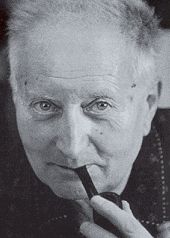
Jean Giono was a French writer who wrote works of fiction mostly set in the Provence region of France.
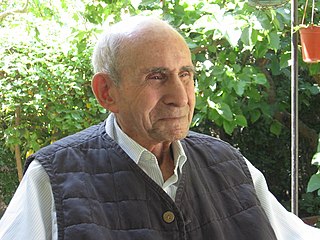
Lütfi Ömer Akad was a Turkish film director, screenwriter, and academic, who directed movies from 1948 to 1990. In 1949, he debuted as a film director with Vurun Kahpeye an adaptation of Halide Edib Adıvar's book of the same title. He became one of the pioneers of the period in the "Director Generation". His 1970s trilogy comprising The Bride, The Wedding and The Sacrifice, is considered his masterpiece. Afterwards, he withdrew from movie making instead directing adaptations for TV.
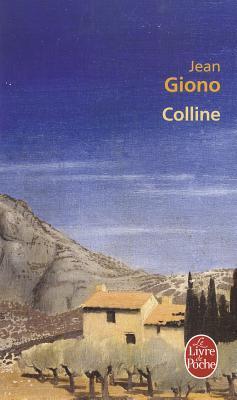
Colline is a 1929 novel by the French writer Jean Giono. It has also been published as Hill of Destiny. It tells the story of a small hamlet in Provence where the superstitious residents struggle against nature, as their settlement is struck by several misfortunes. Colline was Giono's debut novel. It is the first installment in the author's Pan trilogy; it was followed by the standalone novels Lovers are Never Losers and Second Harvest.

Clotilde Hesme is a French actress known for playing Lilie in Philippe Garrel's Regular Lovers and Alice in Christophe Honoré's Love Songs. She is also known for the role of Adèle from the TV series Les Revenants.

Les Âmes fortes is a 1949 novel by the French writer Jean Giono. It was the basis for the 2001 film Savage Souls, directed by Raúl Ruiz.
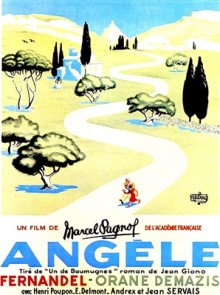
Angèle is a 1934 French drama film directed, produced and written by Marcel Pagnol, based on the 1929 novel Un de Baumugnes by Jean Giono. It stars Orane Demazis.
Angèle Diabang Brener is a Senegalese screenwriter, director and film producer.
Second Harvest is a 1930 novel by the French writer Jean Giono. The narrative is set in a nearly abandoned village, where the last heir succeeds to find love in a woman who saves him from a river.
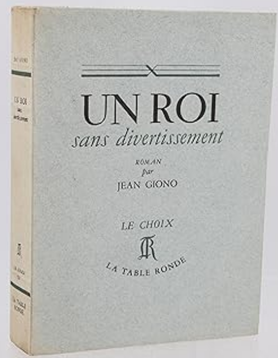
Un roi sans divertissement, published in English as A King Alone, is a 1947 novel by the French writer Jean Giono. The narrative is set between 1843 and 1848 in the French Prealps and follows a police officer who discovers unpleasant truths about himself during a murder investigation. It was the first book by Giono to be published after World War II and marks the beginning of a new phase in the author's oeuvre.

The Song of the World is a 1934 novel by the French writer Jean Giono. The narrative portrays a river and human vendettas as a part of nature. The story contains references to the Iliad. Its themes and view on nature were heavily inspired by Walt Whitman's poetry collection Leaves of Grass. It was adapted into the 1965 film Le Chant du monde, directed by Marcel Camus.

The Great and the Good is a 1996 novel by the French writer Michel Déon. It tells the story of a Frenchman who is born to a poor widow, moves to the United States in the 1950s and becomes a wealthy stockbroker, before he returns to France.

Adiós, Tierra del Fuego is a 2001 book by the French writer Jean Raspail. It focuses on Tierra del Fuego, an archipelago off the southern tip of South America, in both a historical and personal perspective. The area had been the subject of several previous works by Raspail, in particular related to the subject of Orélie-Antoine de Tounens, the self-proclaimed king of Araucanía and Patagonia, who also is featured prominently in Adiós, Tierra del Fuego. The book received the Jean Giono Prize.
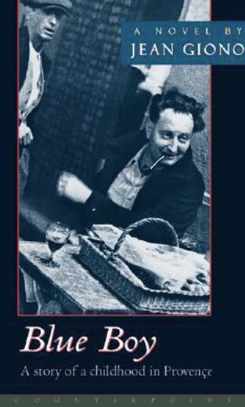
Blue Boy is a 1932 novel by French writer Jean Giono. It tells the story of a family in Provence, with an ironer mother and a shoemaker father. The book is largely autobiographical and based on Giono's childhood, although it has many fictional anecdotes. An English translation by Katherine A. Clarke was published in 1946.
François Leterrier was a French film director and actor. He entered the film industry when he was cast as the lead in Robert Bresson's film A Man Escaped (1956). After this he assisted other directors before directing his debut film in 1961.

The Open Road is a 1951 novel by the French writer Jean Giono. New York Review Books published it in English translation by Paul Eprile on 17 August 2021.
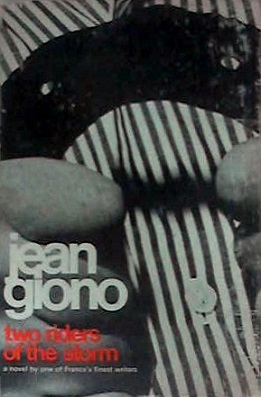
Two Riders of the Storm is a 1965 novel by the French writer Jean Giono. An English translation by Alan Brown was published in 1967. The book was the basis for the 1984 film Les Cavaliers de l'orage, directed by Gérard Vergez. The film received the award for Best Music and was nominated for Best Set Design at the 10th César Awards.
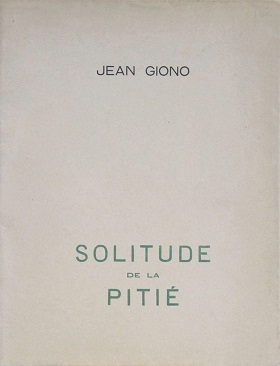
The Solitude of Compassion is a 1932 collection of short stories by the French writer Jean Giono, some of which had appeared earlier. The stories focus on rural life in Provence. The book was published in English in 2002, translated by Edward Ford.
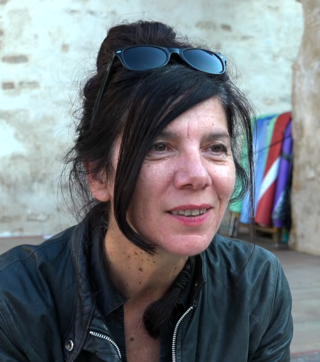
Brigitte Giraud is a French writer, author of novels and short stories. She was awarded the 2022 Prix Goncourt for her autobiographical novel Vivre vite.
Jean Giono was a French author who wrote works of fiction mostly set in Manosque in the Provence region of France.

The Pan trilogy consists of three novels by the French writer Jean Giono, published in 1929–1930. The stand-alone stories are set in Provence and revolve the struggles of the peasant population. Two of the novels were made into films in the 1930s by Marcel Pagnol.
















